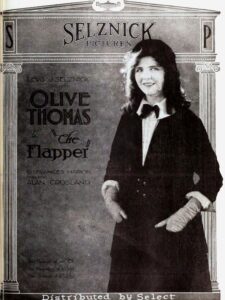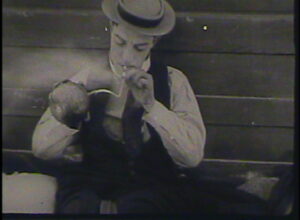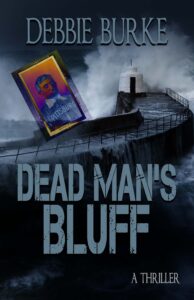By Debbie Burke
Please welcome today’s Brave Author who’s submitted the first page of a historical Crime Novel. Give it a read then we’ll discuss it.
~~~
Donny Malone
Larry began eating at Vicenzo’s after his last picture went bust and his fourth wife fled with the remaining cash. It was a cheap breakfast joint off Santa Monica’s Broadway and Sixteenth. A SWELL LITTLE JOINT, he wrote Howard Miller in a telegram arranging the meeting.
Miller was one of those full-time writers on the payroll at Paramount. Swell kid. Owed Larry too. Back in seventeen, Larry accepted Miller’s romance script titled: The Loving Call. Anyway, cut a long story short, the picture made money. Big money. Made Howard Miller a star. Or as much a star as its possible to be for a writer. Still, he had the manner of a kid from the Bronx, old Howie. He’d still roll up his sleeves when the L.A. sun hit noon. He’d still greet a guy with a firm, two-handed grip, and look any maître d’ in the eye without flinching. Howard weren’t into none of that small talk baloney neither. Soon as Vicenzo filled the coffees, he got down to talking shop.
“So Larry,” he asked. “How’s the kid?”
He was asking about Malone.
“Donny’s swell. Donny’s Donny.”
“Cos last I heard, Malone burnt his bridge back to vaudeville.”
“Donny’s done with that vaudeville hooey. Gets into L.A. tomorrow. Donny’s big time.”
“I hope you’re right.” Howard sighed, shaking his head. He dropped two sugar cubes into his coffee. Gave it a stir with his finger. “Since Malone gets his kicks making Mackenzie Campbell out like a chump.”
“Mack’s done. Donny’s contract was up.”
“I’m talking about Mack’s wife.”
“They were done.”
“Done, Larry? You think Campbell – Campbell – is letting Malone cross the country with that broad?”
Larry didn’t know what Mack had planned. Never thought to wonder. All he knew was Donny Malone didn’t belong in no dying nineteenth-century circus act. This was a kid who could jump from a railway bridge onto a series of fast-moving carriages. Who would do it in a hot minute for a twenty-cent bet. A kid with the acrobatics of Buster Keaton. The dashing victory-smile of Fairbanks. And Larry wasted no time telling him. Put on his Hollywood voice and told the kid straight. Told him, ‘Donny. Baby. You ain’t signing with that bum another season.’
“So what he say?” Howard asked.
~~~
Let’s start with the title. On its own, Donny Malone isn’t intriguing. I immediately thought of the 1997 film Donnie Brasco with Johnny Depp and Al Pacino. Unless a person is famous or notorious, a name doesn’t generally make a good title because the reader doesn’t yet understand the reference. A better title could hint at the bygone era of Hollywood that might attract readers who enjoy the noir genre.
This first page does a nice job echoing conventions of pulp fiction and noir. A telegram sets the time as early to mid-20th century in Santa Monica. The language is sharp, crisp, and slangy, further setting the period tone.
 Brave Author introduces Larry who’s down on his luck, reduced to eating at a dive café after suffering professional and personal misfortunes in the Hollywood film industry.
Brave Author introduces Larry who’s down on his luck, reduced to eating at a dive café after suffering professional and personal misfortunes in the Hollywood film industry.
Howard Miller’s character is established with backstory (more on that in a moment) as a successful Paramount screenwriter who is indebted to Larry. The inference is that Larry contacted Howard to call in a favor since Larry’s career is evidently languishing.
The subject of their conversation is an unseen third character, actor Donny Malone, followed quickly by the introduction of two more unseen characters: Mackenzie Campbell and Campbell’s wife with whom Donny has or had a relationship. Campbell is apparently not someone to mess with, raising a possible threat to Donny. The reference to an expired contract indicates Donny and Campbell once had legal obligations to each other but that’s now over.
The potential for conflict is present, although the reader isn’t sure yet what the conflict is. For the reader to fully engage with the story, s/he needs to understand the relationships among characters and what their opposing goals or agendas are. Suggest you fill in those aspects quickly in the pages that follow.
The lead-off sounds promising but I see four issues that need work.
First problem: What is Larry’s profession? He’s in the Hollywood film business but in what capacity—producer, director, talent agent, actor, writer? The lack of that knowledge makes it difficult to pin down what he wants and what he hopes to accomplish by meeting Howard. It sounds as if Larry might represent Donny as his talent agent but that’s not clear.
The character sketch of Howard is well done. Describing him as a “swell kid” reinforces appropriate slang of the era. “Back in seventeen” narrows down the time closer to the 1920s.
However, it also highlights the second problem: most of that paragraph is an information dump about Howard. After the line “Still, he had the manner of a kid from the Bronx, old Howie” I suggest you cut the rest of the paragraph and save it for later in the story.
The following lines confused me:
Soon as Vicenzo filled the coffees, he [which he? Vincenzo or Howard] got down to talking shop.
“So Larry,” he [again, which he? Vincenzo or Howard] asked. “How’s the kid?”
Easy fix: Soon as Vicenzo filled the coffees, Howard got down to talking shop.
“So, [need comma] Larry,” he asked.
The mention of sugar cubes and Howard stirring coffee with his finger were wonderful little details that again reinforce the era. Fun fact: restaurants replaced sugar cubes with packets after World War II.
The third problem is yet another info dump, this time about Donny Malone.
“All he knew was Donny Malone didn’t belong in no dying nineteenth-century circus act. This was a kid who could jump from a railway bridge onto a series of fast-moving carriages. Who would do it in a hot minute for a twenty-cent bet. A kid with the acrobatics of Buster Keaton. The dashing victory-smile of Fairbanks. And Larry wasted no time telling him. Put on his Hollywood voice and told the kid straight. Told him, ‘Donny. Baby. You ain’t signing with that bum another season.’”
While the description of Donny is compelling and shows he has great star power, it’s still an info dump.
Don’t feel bad, Brave Author. We all struggle with finding the right balance between telling just enough background information to orient the reader and over-telling that halts the story’s forward movement.
Also, if this whole paragraph is Larry’s thoughts, the transition back to the conversation with Howard is a bit bumpy. ‘Donny. Baby. You ain’t signing with that bum another season’. Because of the single quotes around these sentences, I had to reread to determine if Larry is reviewing the conversation in his head or if he’s telling Howard about it.
In the passage below, Larry and Howard are already talking about Donny:
“Donny’s swell. Donny’s Donny.”
“Cos last I heard, Malone burnt his bridge back to vaudeville.”
“Donny’s done with that vaudeville hooey. Gets into L.A. tomorrow. Donny’s big time.”
“I hope you’re right.” Howard sighed, shaking his head. He dropped two sugar cubes into his coffee. Gave it a stir with his finger. “Since Malone gets his kicks making Mackenzie Campbell out like a chump.”
“Mack’s done. Donny’s contract was up.”
“I’m talking about Mack’s wife.”
“They were done.”
“Done, Larry? You think Campbell – Campbell – is letting Malone cross the country with that broad?”
Why not continue the conversation and incorporate Larry’s thoughts about Donny into dialogue?
Here’s a different way to convey the info:
Larry didn’t know what Mack had planned. Never thought to wonder.
One side of Howard’s mouth pulled down, unconvinced.
Larry leaned close and put on his Hollywood voice. “Listen, Howard, for a twenty-cent bet, this kid will jump from a railway bridge onto a fast-moving train. He’s every bit as good an acrobat as Buster Keaton. Plus, he’s got that Fairbanks smile. I didn’t waste no time telling him straight. ‘Donny. Baby,’ I says, ‘you ain’t signing with that Campbell bum another season.’”
The reader still doesn’t know exactly what’s happening or what conflicting agendas are in play among Larry, Howard, Donny, Campbell, and Campbell’s wife. But enough hints have been provided to promise the reader that fireworks are ahead.
The fourth problem is point of view. It feels off. Sometimes the voice sounds as if an unseen narrator is telling the reader about Larry rather than Larry thinking to himself.
Vintage films often used voice-over narration to explain context and introduce characters. A prime example is the 1944 classic Laura where Clifton Webb talks to the audience about her murder. If this is the effect Brave Author is striving for, it doesn’t quite succeed.
Currently, readers favor deep point of view, inside the main character’s skin, thinking his thoughts, experiencing his sensations and physical reactions. Yet that doesn’t feel quite right for this historical piece.
So I confess I’m stumped how to handle POV except to suggest that Brave Author study classics written during this time period to pinpoint how those authors treated POV to achieve their tone. If TKZers have other ideas, please chime in.
There are minor problems with word repetitions and typos:
“Or as much a star as it[‘]s possible to be for a writer.” I smiled at the humorous observation that the writer is definitely at the bottom of the movie industry food chain.
The word “swell” is used three times on the first page. If “swell” is a verbal tic Larry falls back on when he’s nervous, three times might be okay but more than that may wear thin with readers. Perhaps change one to a similar slang term for the era, e.g. Vincenzo’s is the bee’s knees. Same suggestion applies to “joint,” used twice in the first paragraph. And “still,” used three times in the second paragraph.
The last line So what he say? might be slang but could also be a typo. So what‘d he say? sounds more natural.
Overall, this page is well written and captures the time, speech patterns, and period slang in a style that’s reminiscent of noir pulp fiction. The reader doesn’t yet understand the story problem or what’s at stake. However, the historic setting and the voice are intriguing enough that I’m willing to read on to discover if Larry is a sour-grapes loser, a hustler seeking a shortcut back into the big time, a determined guy who refuses to give up, or someone else. Knowledge of his profession would help frame his personality.
This promises to be an entertaining trip into the gilded age of Hollywood where treachery lurks beneath the glamorous veneer.
BTW, Jim Bell has discussed pulp fiction and noir here. On Patreon, he offers short stories set immediately after World War II about a studio fixer in the Hollywood film industry. You might check out how our resident expert handles his first pages.
Best of luck to you, Brave Author. You’re off to a good start.
~~~
TKZers: What do you think of Donny Malone? What suggestions can you offer our Brave Author? How would you handle POV?
~~~
Debbie Burke’s new thriller, Dead Man’s Bluff, is on sale at the introductory price of only $.99. Please check out the link here.




This sounds like the beginnings of a great (or swell?) story…one I’d like to read. Nice job, BA. I don’t write this genre, and I’m just getting my feet wet reading it, (thanks, JSB), but the more I read, the more I like. It seems to me that studying this genre would be good for many writers, especially because the dialogue is usually spare and off-the-nose.
Agree with Debbie’s critique. I had a little problem with identifying the characters not present in the scene. Had to re-read a couple of times to get it straight.
The first jar I experienced was, “He was asking about Malone.” It seemed like a sudden pan back to omniscient POV. But then after a second pass, I guessed maybe it was Larry thinking. Perhaps there’s another way to say it that would make it clear we’re in Larry’s head. Such as Larry thinking, “That’s right-to-the-point Howie, asking me about Donny Malone.” Or something better than that.
Thanks for the peek, BA…it’s a solid start. 🙂
Swell comments, Deb!
Thanks for sharing your work with us, brave writer. I think Debbie gave you a very useful critique and lots of expert advice. Here are a few additional comments:
Opening
I don’t have any problem with your first line. However, the second and third sentences of your opening can be combined, like this:
A SWELL LITTLE JOINT, he wrote Howard Miller in a telegram arranging the meeting at the eatery off Santa Monica’s Broadway and Sixteenth.
When you use a word like joint, the reader won’t imagine an expensive place; therefore, there’s no need to tell the reader that it’s cheap. Keep the writing as tight as possible when painting the opening image.
Backstory/Information Dumps
The first page of a novel is not the place for a lot of backstory and information dumps. There should be mostly action and dialogue. Imagine the reader sitting in the little joint and observing the scene. The reader wouldn’t know anything about the two men having a chat. So, throw the reader right into the scene, and dribble in small bits of backstory later. If you want a reader to turn the page, don’t make him think too hard. Instead, find a way to make the reader feel something. Imagine filming this scene. Show the reader what happens. Make the reader a witness to the scene. On Jane Friedman’s blog, there is a wonderful article by Paula Munier that provides an exercise that will help you to analyze your own first page. Read the blog post entitled “Your Novel’s First Scene: How to Start Right” (https://www.janefriedman.com/your-first-scene/), and do the exercise that Munier recommends.
Dialogue
As Debbie wisely suggested, the reader needs to know who “he” is at all times. There is too much confusion on your first page, and Debbie already explained how to fix this.
I would get rid of this line: “He was asking about Malone.”
I agree with Debbie about this line: “So what he say?” Howard asked.
Use: “So what’d he say?” Howard asked.
I suggest that you take a look at James Scott Bell’s book on dialogue for some helpful pointers.
Word Repetition
As Debbie mentioned, be careful about word repetition. In addition to Debbie’s examples, the word “kid” is used at least six times on the first page:
“Swell kid”
“he had the manner of a kid from the Bronx”
“This was a kid who could jump from a railway bridge onto a series of fast-moving carriages”
“A kid with the acrobatics of Buster Keaton”
“Put on his Hollywood voice and told the kid straight”
“How’s the kid”
Hint: Sometimes writers are too close to their own writing to see these things. So use writing software!
Show, Don’t Tell
One of my favorite parts of your first page was this one:
“I hope you’re right.” Howard sighed, shaking his head. He dropped two sugar cubes into his coffee. Gave it a stir with his finger. “Since Malone gets his kicks making Mackenzie Campbell out like a chump.”
I loved the “gave it a stir with his finger” line, because it “shows” the reader what the character is like.
I want to see more of this. Great stuff.
Too Many Character Introductions on First Page
There are so many characters mentioned that it could be confusing to the reader.
Names mentioned:
Larry (last name unknown)
Howard Miller
Donny Malone
Mackenzie Campbell (also referred to as Mack)
Mack’s wife (also referred to as a broad)
Vicenzo Assuming he is the owner of the establisment.
Buster Keaton — Younger folks picking up your book might not get this reference.
Overall Impression
I like the setting and your opening line. I agree with Debbie about the title. Rather than a lot of backstory/info. dumps and everybody talking about Donny, why not have a scene with Donny in it to introduce Donny? If he’s the lead character, show him in action, rather than have people talking about him. It’s always more interesting for the reader to see a character like Donny in action rather than read a scene with other characters talking about Donny. Brave writer, congratulations on a clever opening sentence, nice details about the time period, and showing the character stirring the coffee with his finger. There’s lots of nice stuff here. Go over Debbie’s notes and the ones I’ve provided here and start your revisions. First pages are difficult, and it’s clear that a lot of thought went into this page. I want to offer lots of encouragement! Best of luck, and keep writing.
Brave Author should be encouraged by your detailed comments, Joanne. Stirring the coffee with a finger was a terrific bit of business that not only captures the period but also Howard’s personality.
I agree there were too many characters introduced, esp. since most of them didn’t appear but were only talked about. A first scene with Donny is an excellent idea since presumably he’s the main character.
Thanks for your always thoughtful input!
I agree with everything you suggested, Debbie, but I found the noir voice rather generic so it didn’t grab me. I assume this entry was made before the more recent ones with the info dump issues. If not, read the posts here, guys, and rewrite your work with them in mind. The people here are pros, and the advice is spot on.
The last course I taught was “Writing the First Chapter” which included a serious edit of the first chapter by me at the end of the course work. The course was cheaper than just the pro edit so most, apparently, didn’t read the material, didn’t internalize it, or didn’t want to bother to rewrite because most of the first chapters were perfect examples of things the course work said you should never, ever, do. Lots of howling in frustrating and banging of my head against my desk followed, and my desire to teach faltered and died.
A good edit does absolutely no good if you aren’t willing to do the craft homework before hand and afterwards.
How discouraging, Marilynn. Reminds me of an old friend who often said, “Books I give them but do they read?” then threw his hands up in despair.
The first page is the most difficult one to write in the whole book b/c there’s so much pressure to introduce characters, location, time period, story problem, and establish the mood and tone, all written with a voice that intrigues the reader to turn the page.
Thanks for stopping by.
Brave Author, I enjoyed this first page. The noir vibe caught my attention as did characterizations like:
Howard sighed, shaking his head. He dropped two sugar cubes into his coffee. Gave it a stir with his finger.
I think Debbie gave you a great critique, and I agree with what she said about the backstory/info dump.
I also thought there were a lot of characters to take in for a first page. I counted six people, or seven if you include Larry’s fourth wife.
I like this opening, but with a rewrite to address the conflict and other issues Debbie pointed out, I think this first page would be awesome. Good luck, Brave Author, on your continued writing journey.
Thanks for chiming in, Priscilla. The finger stirring coffee rang the bell for a lot of us.
“Or as much a star as its possible to be for a writer.” This line contains my all time personal grammatical pet peeve. It may sound petty, and I’m not immune to making mistakes. but when I see this one I stop paying attention. I bet I’m not the only one.
Good catch, Catfriend! I missed that one–the dreaded its vs it’s trap.